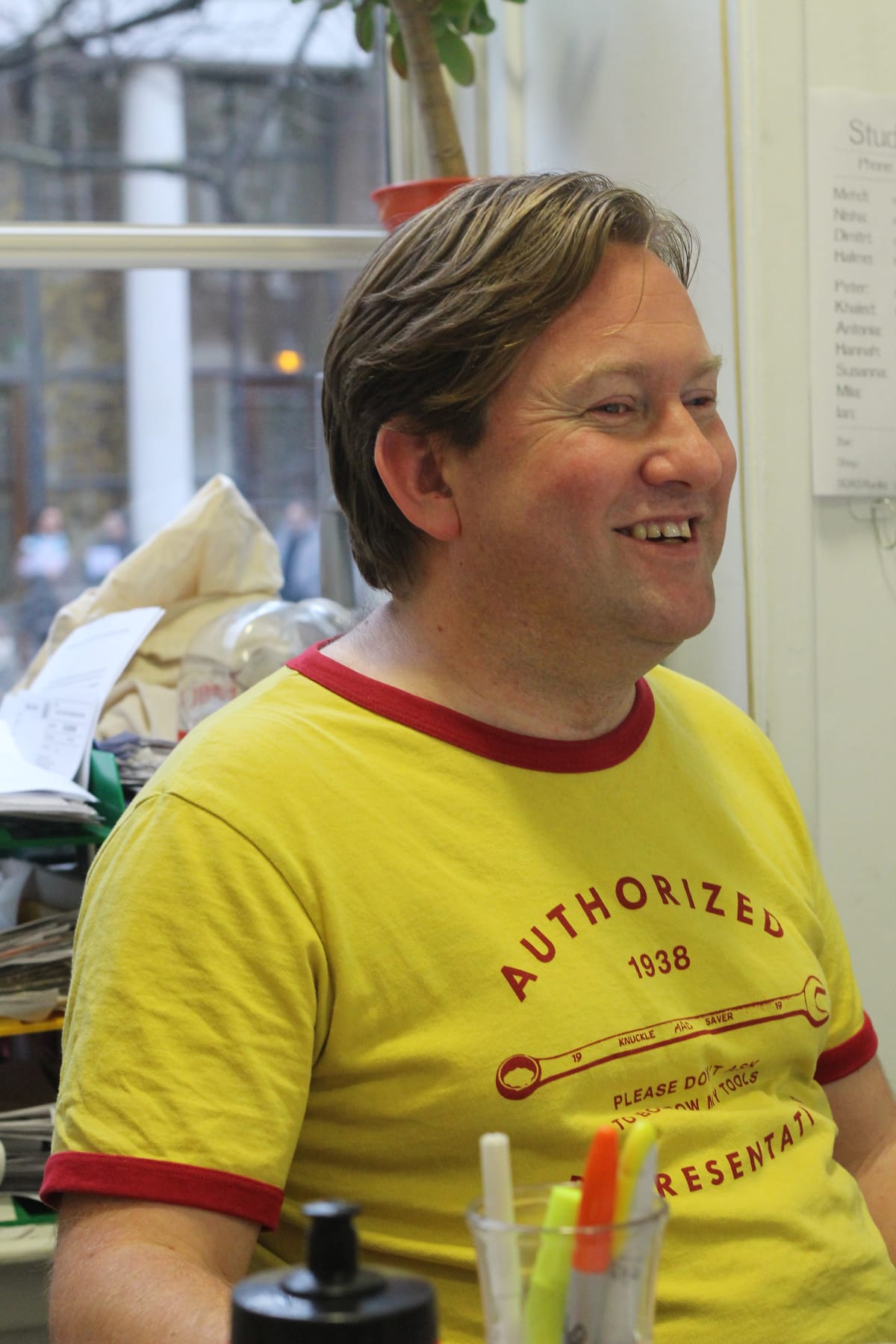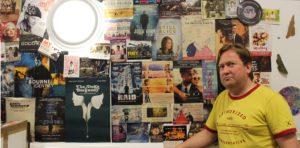HUMANS OF SOAS: Peter Baran

You’ve been here at SOAS for twenty years, where were you before?
This is the first university I’ve worked at. Before that, I worked for MTV for about a year as a production assistant on a show called The Real World, which was like a proto-reality TV show. It was like the fifth biggest TV show in the world at the time. The one in San Francisco was probably the more famous one because a guy in it had HIV, and died just afterwards. That was ’94, just at the point when HIV and AIDS were becoming much more normalised. The fourth one was in London, and I was one of the few British staff that worked on it. I kind of fell into it when I came out of university; it was really interesting and for a while was really cool. But I got disillusioned quite quickly. So after that I worked for the University of London for a bit…we used to come to the bar here on a Friday night for a drink and I saw it on the job board and thought, I could probably do that. Part of my motivation was “Oh, it would be nice to work in this place cos it’s got a nice bar”. And the rest is history. Quite a lot of history. When I started, the Union didn’t have a shop, didn’t run the bar, I had two sabbatical officers, no staff. I very, very, very rarely drink in the bar now because it’s hard to be the licensee and relax there.
Was there a lot of student impetus to do that: open a bar and a shop run by students?
Not at all. The students at the time hated the idea of having a member of staff, but they owed the school about 40 grand, so I had to make sure they at least were returning clear audits. And luckily, we ended up getting on and they saw how it was important to have our own income stream and be delivering services to students that they wanted, and are run by them in the way they want. It was partially just to make sure we paid that money back, and also to give us independence because we’re always going to be at the whim of the school.
Do you feel like you’ve been an effective mediator between the students and the staff?
It always changes. I’ve tried to make sure when we do training with them we teach them that a conversation is better than no conversation. It doesn’t always work as on both sides they can be combative. There’ve been years when I’ve thought I could have done more, and there’ve been years when it’s been great. It’s still a relatively rocky relationship, but I think that’s not due to either side not talking to each other. And that’s the other thing about money: if you’re always talking about money, then you can’t have conversations about other things. The less you talk about money, the better the relationship is, and here we rarely talk about money. Or we very rarely talk about money that we need to survive; we talk about money for new things we might want to do. Touch wood that will continue.
I hear you love films?
I’ve got a Masters in History of Film and Visual Media which I did at Birkbeck about 12 years ago. On average I at least see a new film a day. Yesterday I saw three films in the cinema, just a way of getting my jet lag back…Ingrid Goes West, Marjorie Prime and Justice League. I go to quite a lot of film festivals, occasionally I present some stuff at them; there’s a silent film festival that I presented at in Scotland.
Is silent film an area you’re particularly interested in?
I’m interested in all types of films but I do see maybe more silent films than most people. You can in London because London’s got a good silent film scene. I present a podcast with a friend of mine where we compare a new release to a silent film on a similar subject. It’s called Sound Barrier, it’s on SOAS Radio. I mean I just like films. I’ve always liked them. I did think about doing a PhD a few years ago but it would probably just be for vanity’s sake, really…nothing much would come out of it except a bit of knowledge about musicals in the sixties or something. Maybe when I retire I’ll do a PhD then!
Do you have a favourite cinema in London?
It depends what you’re looking for. I really like the Cinema Museum in Kennington, which is under threat of closure actually; there’s a big petition. Every two weeks they do a thing called the Kennington Bioscope which is a silent movie night where they show a feature and then a couple of shorts.
Is there anything you want to send out to the student body?
Just keep being SOAS students, you know, keep making my life interesting…not too interesting, but interesting enough.
Interview by Amelia Storey
Photos by Uswa Ahmed





